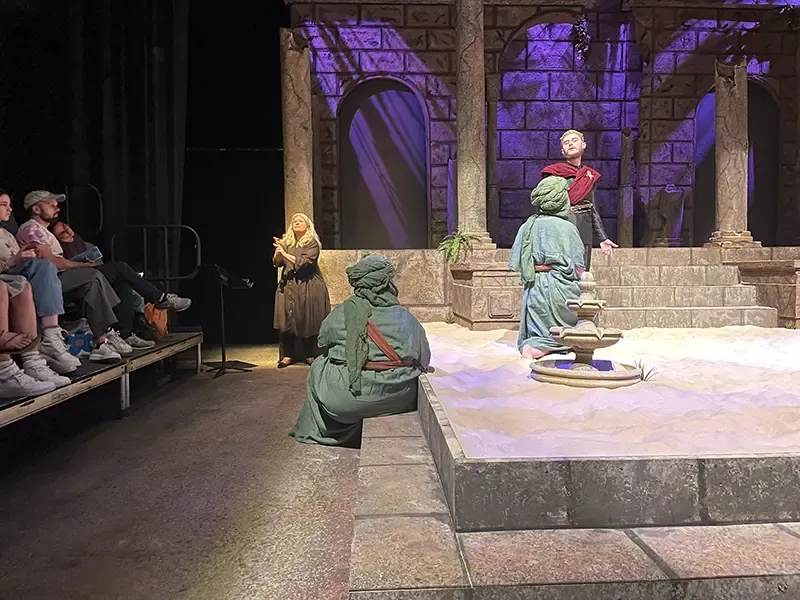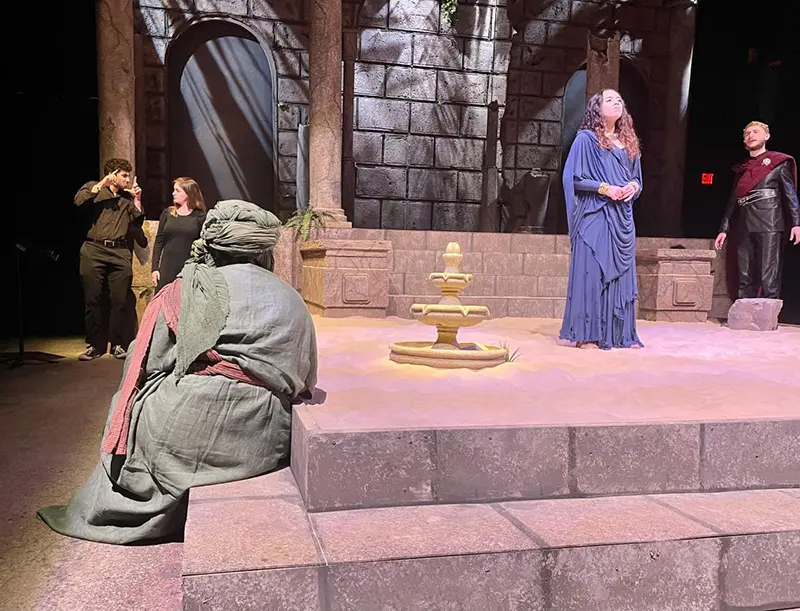
At a faculty meeting for the Department of Theatre and Dance last fall, first-year graduate student representative Brendan Mullenix of the Design MFA Program inquired as to what steps the department was taking to make shows more accessible.
Immediately, Assistant Professor Jenny Mercein recalled that she had met Denise Crochet—a Visiting Assistant Professor of American Sign Language in the Linguistics program—the previous spring, and the two had briefly discussed the possibility of working together. This recollection led to coffee between Mullenix, Mercein, and Crochet on Freret Street, and from there, a collaboration was born. The decision was made to incorporate ASL into the upcoming production of Antigone directed by Professor of Practice Ryder Thornton, due to be staged in Spring 2022.
As Crochet states, “Theatre and the arts hold value for all, and it is vital to afford the Deaf and Hard of Hearing community opportunities to share, learn, and enjoy theatrical experiences.” After securing support from Dr. Anneliese Singh and the Office of Equity, Diversity, and Inclusion at Tulane, Crochet went to work to gather a team of both professional and student/intern interpreters to prepare for the Spring production. She recruited Carson Koffler, a Linguistics major enrolled in LING 2010 (the highest level of ASL offered at the university) to join her, along with recent Tulane graduate, Eliana Kaufman (who is pursuing a professional interpreting career), and professional interpreter Laura Sicignano. Together, the group got to work analyzing and translating the ancient tale.
The process of mentoring and developing the students’ interpretations required Crochet to rely heavily on her experience with the Theatre Development Fund, as well as input from time spent within the Deaf community. Meticulous work went into choosing the appropriate linguistic and semantic equivalency of Anne Carson’s translation of Sophocles’ ancient text. To familiarize themselves with the pace and placement of Professor Thornton’s production, the team attended multiple rehearsals as opening night approached. And just like the show’s cast, the interpreting team spent extensive time honing their sign production until they were sure of the quality of their interpretation. And from there, all that was left was showtime.
Professor Thornton came away thrilled with the result, stating “The entire team of ASL interpreters brought a new level of theatricality to the world of the play, and more importantly, they played an important role in signaling to the cast and the audience our department’s commitment to fostering greater accessibility in our productions.”
Mercein adds, “I’m so grateful to Brendan Mullenix for asking the question about accessibility in that fall faculty meeting. This is just a first step, but I am hopeful it will be the first of many to make our spaces more welcoming and inclusive.”
The group has been invited to present about their Antigone project at the American Alliance for Theatre and Education (AATE) conference this July in Providence, Rhode Island. The AATE, among the most recognized arts education organizations, works to ensure that every young person experiences quality theatre arts in their lives provided by proficient, talented artists and educators.



